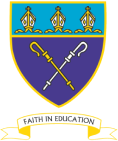Teaching and Learning
Students learn most effectively when they are challenged by high quality teaching, set with appropriate levels of challenge and in an environment where the process of learning is praised, as much as the outcomes themselves.
At The Bishop of Llandaff, our staff are actively engaged in 'action research' to ensure that our teaching is cutting edge and applies the most effective strategies which lead to securing the best possible learning for students of all abilities. Staff development is central to this and our training for staff draws upon the work of widely recognised thinkers including John Hattie, Carol Dweck, as well as the work of The Sutton Trust.
Our 'Five Principles of Excellence' is our bespoke framework for teaching and is designed to ensure that students make the most effective progress in learning, as seen over a sustained period, by providing daily exposure to highly effective teaching. Specifically
- High Challenge where lessons are planned so that students have the highest expectations of what they are able to achieve;
- Clear Explanation where students gain new knowledge and skills;
- Modelling High Quality so that students can achieve high standards having applied the new knowledge and skills learned;
- Quality Questioning so that students are challenged to think hard about their learning with breadth, depth and accuracy; and
- Feedback for Improvement to challenge students to think about how they can improve their own learning to progress to the next stage of development.
Underpinned by Government policy and educational research, our teaching provides students with the foundation skills to become successful. Our primary aim is to create an environment where students develop into effective communicators, critical thinkers and avid readers. Students are also challenged to become numerate, able to cope confidently with the mathematical needs of adult life. It is our belief that, by working collaboratively, all students can achieve levels of literacy and numeracy which will stand them in good stead for employment and life beyond school.



